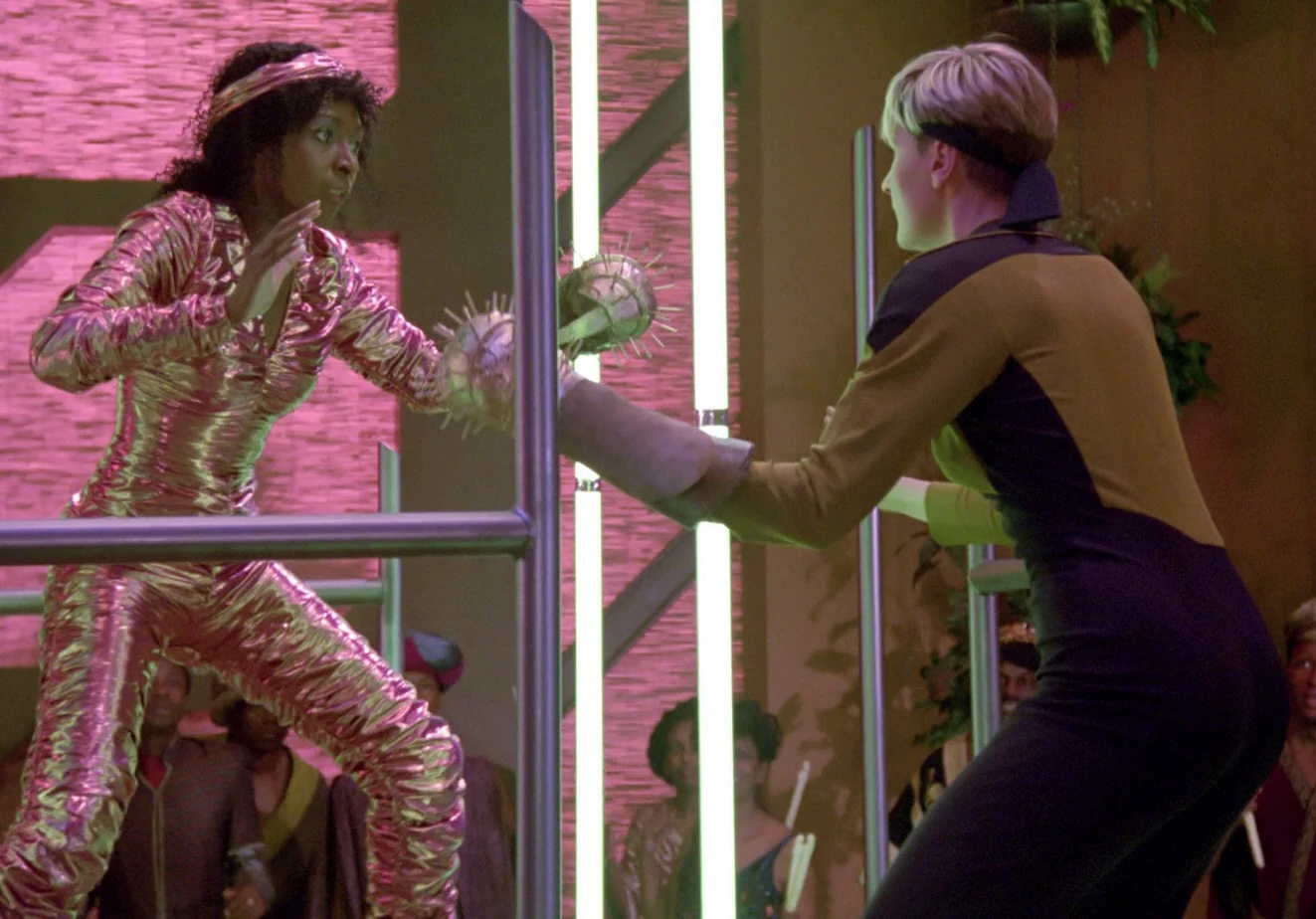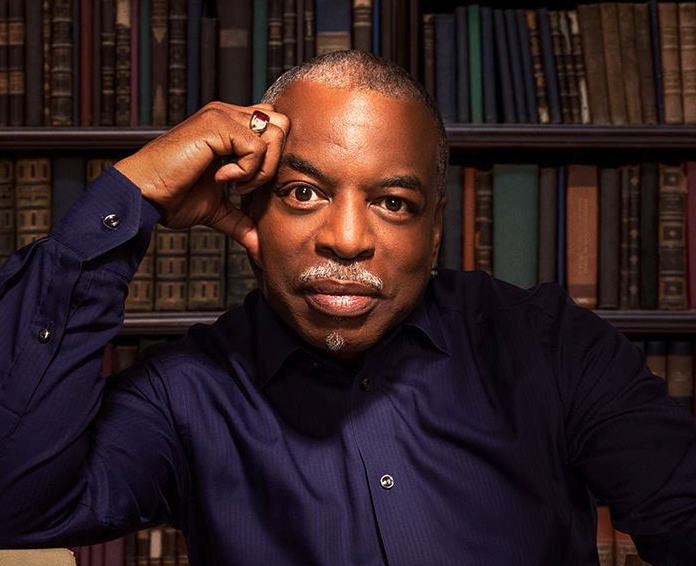Series: Star Trek: The Next Generation
Season 1, Episode 4
Original Air Date: October 12, 1987
 |
| via Memory Alpha |
You know how sometimes, when pondering the missteps of others - teenagers, for instance - we marvel at the number of points along the path when someone should have thought "maybe this isn't such a good idea" and yet they plowed right on through anyway? Such is the case with "Code of Honor."
This week's story features prominently in Worst Episode Ever lists, not just for TNG but for the full Star Trek run. Why? The basic synopsis above doesn't sound so horrible, right? Well you see, some genius thought it would be a great idea to cast all of the Ligonians as Black actors in a "1940s tribal Africa" theme. The initial genius was episode director Russ Mayberry who was, in fact, fired before the end of filming, supposedly for the casting choice. But the show was produced and aired anyway so none of the higher ups was so offended as to leave this one in the can. So "genius" was not in short supply at this stage.
For the record, members of the regular cast did express objections - and later, regret - but, as we shall see over time, there were risks in complaining too vehemently about the scripts.
With the socio-political missteps of the original series (TOS), it was relatively easy to write them off as a product of their time, at least for me. But I was a teenager in 1987 and I'd like to think I knew better - or at least, I can acknowledge that I should have. For a show that depends on socially progressive thinking for much of its appeal, someone, somewhere along the pipeline should have nixed the "1940s tribal Africa" idea.
All of that said, there are some redeeming qualities in the story. It provides the first TNG mention of the Prime Directive, easily one of the greatest plot devices in science fiction (read more here). There are also some nice demonstrations of the group decision-making process employed by Picard among his senior officers, an essential theme for the Star Trek franchise. But overall, "Code of Honor" is definitely a low point in the canon.
Acting Notes
 |
| via Wikipedia |
Burton was an army brat, born in West Germany while his father was stationed at Landstuhl as a photographer for the U.S. Army Signal Corps. He grew up in Sacramento, raised by his mother, a social worker, administrator and educator. He entered Catholic seminary at age 13 with plans for the priesthood but thought better of it after reading a few important philosophers. Instead, he went to Southern Cal on a drama scholarship.
Iconic television gig #1 came in 1977 with his first professional audition: African slave Kunta Kinte in the miniseries Roots, based on Alex Haley's novel. The series finale still holds the third-highest Nielsen rating of any television series episode. 37 Emmy nominations, including one for Burton, yielded nine wins.
Iconic television gig #2 came in 1983. Burton was the executive producer and presenter for Reading Rainbow, a public television program which encouraged children to read. The show ran for 23 seasons and still lives on in computer apps. Burton won twelve Emmys for Reading Rainbow: ten as producer, two as presenter. For comparison, Jim Henson only ever won nine.
And, of course, iconic television gig #3 came in 1987 with the role of Geordi La Forge in TNG. Seriously, any one of those iconic gigs would have made most careers. Trek has also brought directing opportunities for Burton. He has directed 29 episodes in total for TNG, Deep Space Nine, Voyager and Enterprise, more than any other former regular cast member.
I remember this dumb ass episode and thought it was one of the worst as well with that Edi Amin type of leader and the horrible outfits they wear. I still say the tar monster was the worst but this is high up there as well. LeVar Burton is one person I really respect for all he has done in the industry
ReplyDeleteThe tar monster episode is another fine example of how the Tasha Yar character was short-changed. They couldn't even manage a dignified exit for her. That, of course, is why she left.
DeleteStay tuned.
I hated that episode. Dumbest plot, dumbest everything.
ReplyDeleteLeVar Burton hosted Reading Rainbow for children, loved it.
Apparently, the screenwriter, Katharyn Powers, wrote a similar episode for the first season of Stargate SG-1, also widely panned.
DeleteAnd it wasn't even the only time the first season of the series tried conceptually ill-conceived societies. And the idea never worked. It worked in the original series because the targets were better defined. It was the only way to talk about the Cold War. Later, TNG tackled the Irish Troubles, but couldn't nail that, either. So that's basically how and why Star Trek ended up building up its own mythology. Strangely, Orville ended up doing the social commentary so much better than TNG ever did.
ReplyDeleteExcept that there is no attempt at allegory here, at least not an immediately perceivable one. It's just weak writing with a disastrous casting decision.
DeleteWell, that's what I mean.
DeleteIt's a pleasure agreeing with you, sir!
DeleteI am getting understand the idea of film episode...
ReplyDeleteExcellent.
DeleteI had no idea about all of that with Burton!
ReplyDeleteAnd I don't really remember this episode.
But most of season one is completely forgettable.
Maybe this one was so bad it should be unforgettable but I guess I did anyway.
Watching the growing pains is brutal. It's the reverse of TOS which started so strong, then was nearly unwatchable by the end. I'm still enjoying the little kernels here and there that provided building blocks over the long haul.
Delete